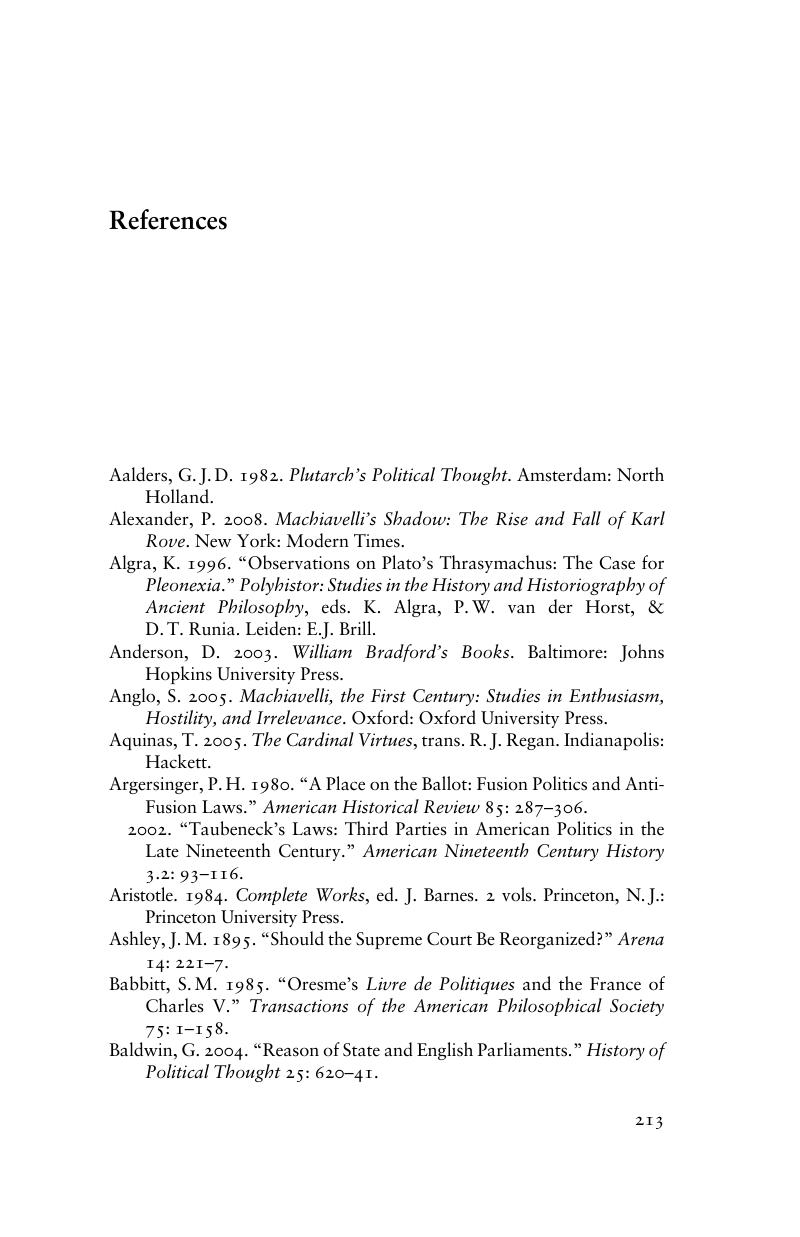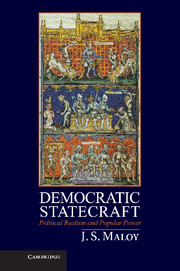References
Published online by Cambridge University Press: 05 March 2013
Summary

- Type
- Chapter
- Information
- Democratic StatecraftPolitical Realism and Popular Power, pp. 213 - 226Publisher: Cambridge University PressPrint publication year: 2013
References
- 1
- Cited by



